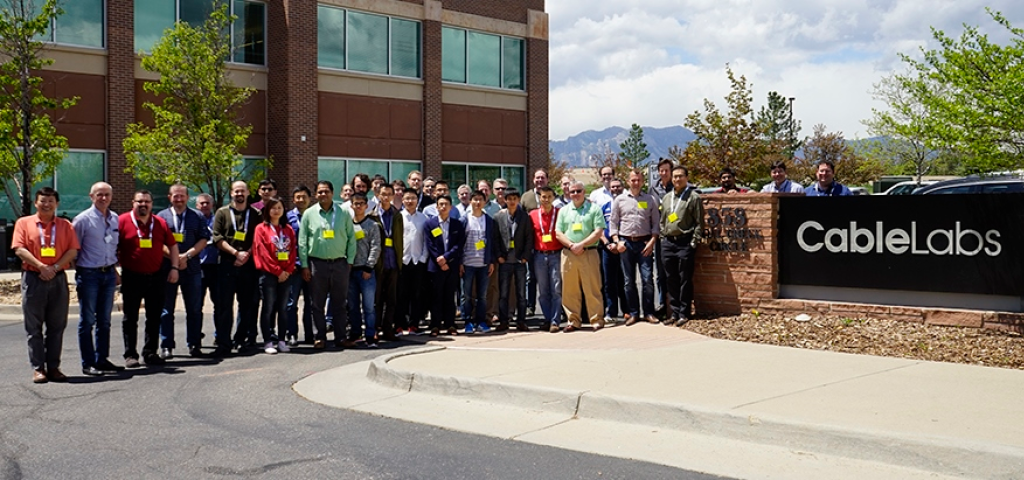
Advancing Open Solutions at the OPNFV Plugfest

OPNFV recently held their inaugural Plugfest, hosted by CableLabs at their facility in Louisville, Colorado. These events are critical to OPNVF’s mission of encouraging and facilitating multi-vendor solutions for Network Functions Virtualization (NFV) based around open standards and the open-source community.
There are many smiling faces in the photo below and several belong to the Wind River team. Joining 41 participants from 19 companies, our experts deployed Titanium Server as an NFV infrastructure platform running complete implementations of multiple virtualized functions, demonstrating interoperability between several NFV solution vendors.
Tetsuya Nakamura, Principal Systems Architect at CableLabs and member of the OPNFV Board of Directors, described the accomplishments of the Plugfest in this recent post.
As Tetsuya explains, the Plugfest focused on the installation of NFV infrastructure (NFVI), as well as various virtual network functions (VNFs) implementing key telecom functions such as virtual EPC and virtual IMS. These multi-vendor configurations ran on multiple hardware platforms and used multiple installers.
The Titanium Server NFVI platform hosted both nanocell and EPC demonstrations. Together with our colleagues from the VNF vendors, we demonstrated full interoperability in a use case comprising a complete virtualized nanocell and virtualized EPC, connecting with the phone over the air and streaming data to the phone.
Titanium Server was also used to execute a couple of OPNFV projects, Functest (base system functionality testing) and Yardstick (infrastructure verification).
As we talk to our customers about “compatibility”, we find the challenge is increasingly about demonstrating interoperability with other companies in the NFV ecosystem. From the service providers’ point of view, open standards avoid the risk of vendor lock-in by encouraging the development of compatible and interoperable solutions by multiple companies. But service providers typically incorporate products from more than one vendor in the complete solution that they deploy, so they need proof that products that should work together seamlessly actually do so. As OPNFV continues to make progress, we expect it to become a de facto standard against which all NFV and NFVI vendors will have to test their solutions.
Plugfests like the one hosted by CableLabs are vital as the telecom industry transitions from traditional, fixed-function equipment to dis-aggregated virtualized solutions that leverage best-in-class products from multiple vendors. Events like this demonstrate that an industry-wide ecosystem can successfully form around open standards and deliver interoperable, compatible products.
At Wind River, we were proud to contribute to this inaugural OPNFV Plugfest and we look forward to even more exciting and advanced accomplishments at the next one.

